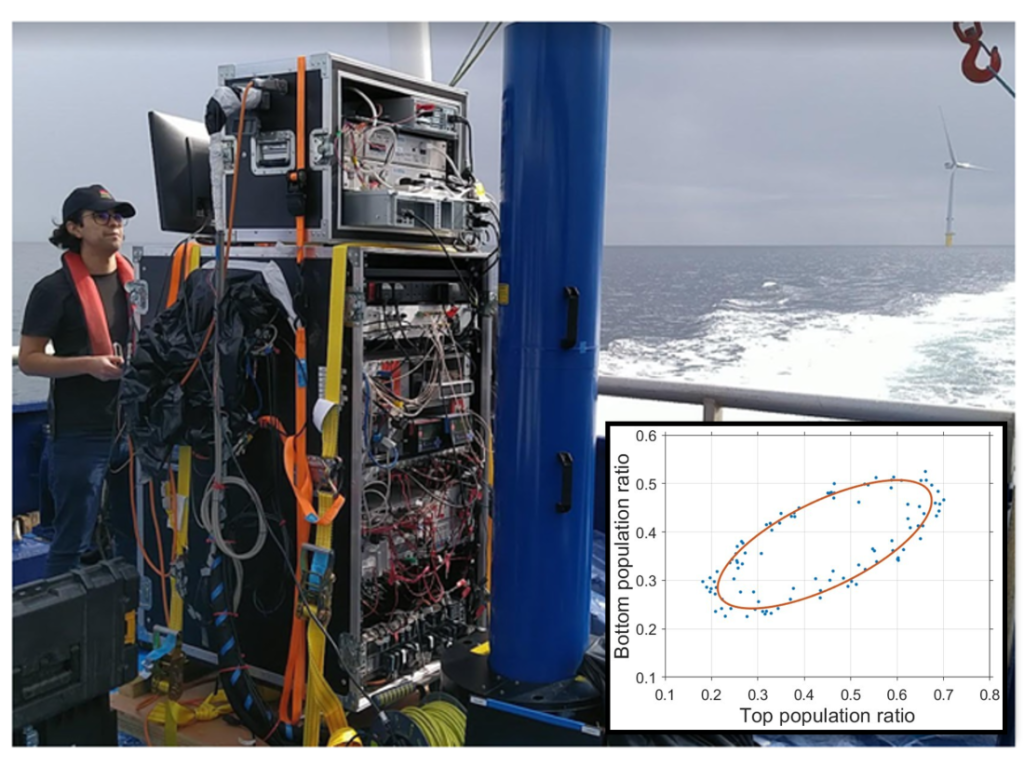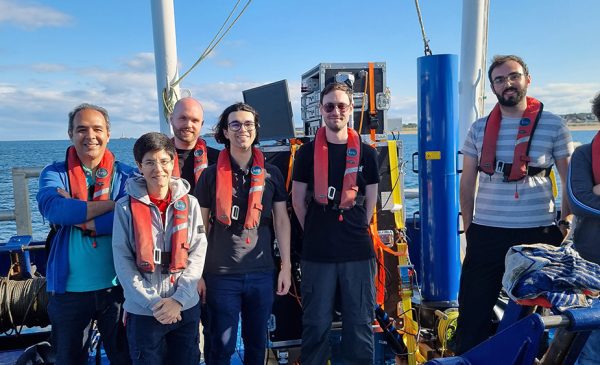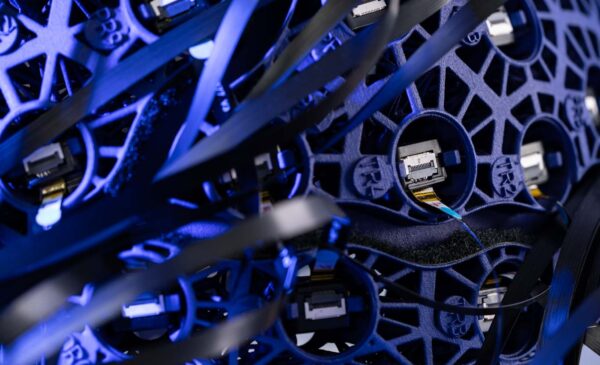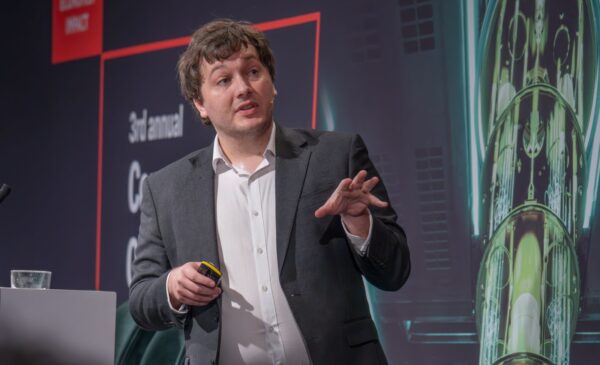A quantum sensor based on atom interferometry with potential applications in mapping and alternative navigation, built by UK Quantum Technology Hub in Sensors and Timing researchers at the University of Birmingham, has been successfully tested in trials on a ship in the North Sea in conjunction with university spin-out Delta-g. The technology could offer new capabilities for mapping the ocean and resilient long-term navigation.
The sensor was installed onto the open rear deck of the RV Princess Royal chartered from the University of Newcastle, using its crane. Whilst docked at the harbour, the sensor was brought to operation within 30 minutes from a cold start, in a strapdown configuration. The trials team then began to investigate performance on the vessel, including the effects of motion due to the motor of the ship. Following this, measurements of acceleration and gravity gradients were performed while the ship was moving at low speed in the harbour, and later while moving in the open sea.

The research team comprised physicists and engineers from the University of Birmingham, and members of the recently launched spin-out, Delta-g. The team included trial lead Dr Andrew Hinton, Adam Seedat, Dr Sanaz Roshanmanesh, Professor Michael Holynski, Principal Investigator at the Quantum Technology Hub and the School of Physics and Astronomy, Dr Farzad Hayati, Dr Sha Luo, Dr Thomas King, Professor Nicole Metje from the School of Engineering, alongside Jonathan Winch and Dr Andrew Lamb from Delta-g.
“During these measurements the system was left to operate on the open deck in a strap-down configuration, without inertial stabilisation, and with no control over tilt or temperature and climate. The system was able to perform atom interferometry in variable weather conditions, including direct sunlight, and being placed under a tarpaulin for sudden downpours of rain. This sea trial was a huge accomplishment in proving that our quantum sensors have reached a technological maturity where they can be reliably operated in harsh conditions.“Dr Andrew Hinton
Following the trial, the sensor was removed from the ship using a crane and then driven back to the University in a van, without any impact on its performance.
The team are now analysing the sensor output and underpinning data from the trial, which will be used to optimise advanced resilience techniques and to investigate data fusion with peripheral sensors to enable performance at higher vessel speeds.
“Jonathan and I have worked with Birmingham for years, and the team never fails to impress. This trial represents a considerable milestone for the QT Hub and quantum accelerometery. With no special equipment needed to protect from weather or control temperature and humidity, the trials are a testament to how robust this technology can be.”Dr Andrew Lamb, Chief Technology Officer of Delta g
This trial represents another step in the remarkable journey of this sensor, which was first developed by the University of Birmingham under contract from the Ministry of Defence, within the EPSRC-funded Quantum Technology Hub and as part of the Innovate UK-funded Gravity Pioneer project. In 2022, the sensor detected a buried tunnel under a road in real-world conditions while suppressing the effect of vibrations – a noise which otherwise drastically increases the measurement time of gravity sensors. While previous marine trials by the international community have focused on gravity sensing, this trial has brought quantum sensing of gravity gradiometry to the sea for the first time – with considerable promise in enabling rapid scanning at high spatial resolution.
The success of these trials marks an important milestone in the development of the sensor, demonstrating its first use on a moving platform and in a maritime environment, continuing progress against the Hub’s roadmap towards resilient, alternative navigation in environments without access to satellite-based approaches (e.g. GNSS).
“It is fantastic to see trials of Hub sensors in maritime settings, on moving vessels. This work, made possible by the support of EPSRC, the Ministry of Defence and Innovate UK as part of the National Quantum Technologies Programme, has provided valuable insight on operational needs and validation of the sensing hardware, progressing along the Hub roadmap towards maritime applications – where quantum sensing has considerable promise in applications such as inertial and alternative navigation, resource exploration and monitoring, and environmental sciences.”Professor Michael Holynski, Principal Investigator at the UK Quantum Technology Hub Sensors and Timing
“The successful operation of a cold atom gravity gradiometer in strap-down configuration on a maritime vessel is a world first and an important step forward for the technology. As the quality and availability of gravity maps improves, gravity map matching is likely to become a credible alternative navigation technology that can bound navigation drift. This will be particularly useful away from the shoreline, out in the deep oceans.”Dr Gareth Brown, Senior Principal Quantum Scientist at the Defence Science and Technology Laboratory (Dstl)




